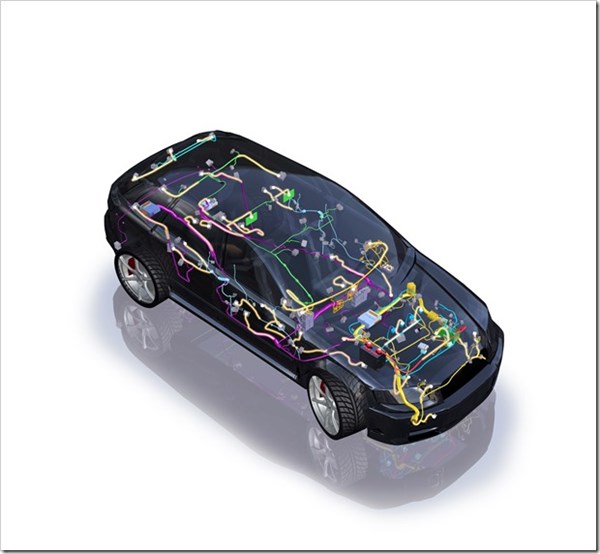A Consequence of Electrification
Although there is a whole lot of talk nowadays in the auto industry about materials including aluminum, ultra-high-strength steel, and composites, there is another material that, Jeff Owens, chief technology officer and executive vice president, Delphi Automotive, told the audience this week at the CAR Group Management Briefing Seminars that is going to have huge growth in automotive: Copper.
#electronics #aluminum
Although there is a whole lot of talk nowadays in the auto industry about materials including aluminum, ultra-high-strength steel, and composites, there is another material that, Jeff Owens, chief technology officer and executive vice president, Delphi Automotive, told the audience this week at the CAR Group Management Briefing Seminars that is going to have huge growth in automotive:
Copper.

Speaking to the issue of increased networking and electrification in vehicles, he said that whereas there is currently about 7.5 kg of copper in the average car, that’s going to go to 15 kg.
What’s more, there is going to be an increase in wiring and cabling from 1 mile to 1.5 miles. There will be a need for vehicular voltage to go from 12 volts to 300 to 600 volts. What was once a $2 connector may become a $20 connector.
Just providing the support for an electrified powertrain will mean an additional cost from $500 to $800 per vehicle.
Speaking of cost: Owens says that he is doubtful that there will be fully autonomous cars not only because of the regulatory, legal and technical challenges (sensors, computing platforms, control systems, etc. etc. etc.), but: “Will the consumer pay for it?”
RELATED CONTENT
-
On Developments at Lincoln, Magna, Fiskar, Volvo and More
Lincoln’s plans for electric; Magna and Fisker working together; Polestar in South Carolina; the Volvo XC60 driven; VW gets deep into 3D; Porsche exec on electric; BMW and hydrogen; Staubli cell for tire sensors; and Bridgestone invests in autonomous trucking company.
-
Creating a Low-Cost Chassis Architecture
The engineers at Zenos Cars have combined recycled carbon fiber, drinking straws and aluminum to create a chassis for a low-volume sports car.
-
Increasing Use of Structural Adhesives in Automotive
Can you glue a car together? Frank Billotto of DuPont Transportation & Industrial discusses the major role structural adhesives can play in vehicle assembly.


.jpg;width=70;height=70;mode=crop)






